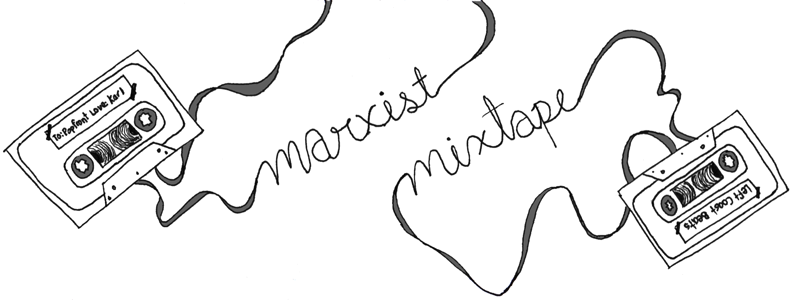The populist genre of the 1960s and 1970s was folk music. When Neil Young or Joan Baez took the military-industrial complex to task, they strummed and crooned about it; in a sense, their aching voices were the voice of the sixties, a peaceful, critical call-to-arms.
Does it make sense that, nowadays, it would be nü metal?
Certainly the pacifist credos of the sixties were well-attuned to Baez’s soothing voice. As for nü metal, the genre originated in the nineties, an aggressive synthesis of metal and hip-hop. To put it one way, Blink-182 is to the Ramones what nü metal is to metal; and since its popularizers were bands like Limp Bizkit and Staind, the genre has been fermenting as a punchline for years.
It may be that late capitalism—which has made pacifying entertainment cheap while keeping good jobs scarce and cost of living high—seems prone to outrage, an emotion innate to nü metal. Hence, Rage Against the Machine has become a soundtrack, of sorts, to Occupy; both Tom Morello and Zack de la Rocha threw their instruments in the ring. And while it may sound sacrilegious, if the chaos in Ukraine were put to a soundtrack, I can’t think of a better genre than nü metal; it lends itself to outrage, either on left or right, as evidenced by Paul Ryan’s professed love of Rage Against the Machine.
Once the nineties ended and the Internet Age rose, most of us Millennials had a collective sigh of relief that nü metal was over, confined to the dustbin of an embarrassing teenagedom. Around ten years down the line, though, nostalgia set in; Staind and Limp Bizkit transitioned from punchlines to youthful reminiscences. (Limp Bizkit is even touring again.)
It’s completely sensible that a trio like Korn, Ice Cube and Eminem—staples of the MTV-TRL era—would be able to pull off something like this. All came from working-class backgrounds and rose to fame later in their life. Regardless of your opinion of their music, this fact gives them a stamp of authenticity to certain listeners. None are as relevant now as they were ten to twenty years ago. And all have the musical and political freedom that comes with post-relevance—no corporate overlord to edit down their raps, enough money to fund a modest music video session.
A final thought: in their article on this video, Alternet wrote that the trio “teamed up” with Anonymous. Yet the video is a pastiche, a mash-up, and probably the work of one person. Which begs the question: who, or what, is Anonymous? Enough ink has been spilled on this to last the decade, but suffice to say, it seems clear that to Ice Cube et al, Anonymous is the populist voice of struggle—in a sense, the moral authority of the global proletariat. They’re also some of America’s most vapid and ridiculous stars—and hence not as morally authoritative as, say, Adele or Lorde, whose casual comments frequently make the rounds on cultural politics sites.
Occasionally when artists claim to speak for or on behalf of Anonymous, they are shut down; only when there is a critical mass of populist sentiment to back that up does it reify. Eminem, Ice Cube and Korn have managed to make a video that’s at once vague and politically outrageous. And that’s no easy task.
